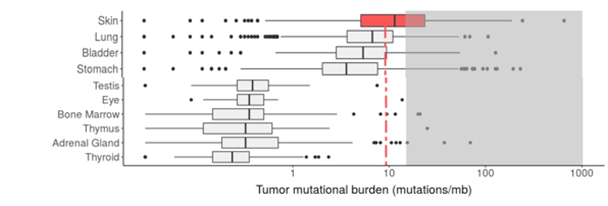Resources and expertise
Model systems for experimental cancer therapy
Model systems mimicking human cancers are a prerequisite for functional studies on cancer progression and metastasis, as well as testing of novel treatment options. We have developed patient-derived model systems (cell cultures and xenografts) for breast, prostate and colorectal cancer, sarcoma and melanoma. The models are used for testing novel treatment modalities or drug combinations, or simply for evaluating a particular patient’s likelihood to respond to available drugs (see figure).

For testing of immune therapy, we are in the process of developing humanized model systems. We are members of the European Consortium for Patient-derived Xenografts (EurOPDX).
We have experience in drug efficacy testing in PDX models and can advise internal users at Institute for Cancer Research in use of such models and design of appropriate experiments. We can also offer technical assistance in projects. Please contact: GM
Bioinformatics:
We are developing bioinformatics resources and solutions, and are providing underpinnings for the implementation of precision cancer medicine at the clinic. We are developing tools for sequence analysis, cancer precision medicine annotation, benchmarking and quality control. We are also aggregating information on national population-wide DNA variation, as well as tools and solutions for handling of sensitive data. We are partner to the RCN-funded ICT Beacon project "BigMed" and the Center of Innovation "BigInsight".

Useful links:
Eivind Hovig's research group
Bioinforamtic core facility
Elixir
Biobanks:
Biological material from cancer patients represents an important source of knowledge especially when combined with matched clinical follow-up information. Biobank material is used to verify data from model systems, to discover new markers that can be used as prognostic factors or to predict prognosis or treatment response, and to validate molecular tests before initiation of clinical studies.
Useful links:
Prostate Biobank
Hereditary cancer
Colorectal cancer
Lung metastases
Sacroma
Melanoma
Brain metastases
Registries:
We use data from national and medical registries and health survey information to validate results from our experimental studies. Data from the Cancer Registry of Norway has been coupled with data from the Norwegian Prescription Database, The Norwegian Patient Registry and the Cause of Death Registry or the Oslo II study. More information is available at helsedata.
Institutional equipment in the department:
|
Technologies |
Supplier |
Model |
Contact person |
|
Detection platforms |
|
|
|
|
Multimode plate reader |
Perkin Elmer |
Victor X3 |
solveig.pettersen@rr-research.no |
|
Colony Counter |
Oxford Optronic |
GelCount |
hakon.ramberg@rr-research.no |
|
Automated Western blot |
Protein Simple |
Peggy Sue |
mads.haugland.haugen@rr-research.no |
|
Microscopes |
|
|
|
|
Fluorescence |
Olympus |
BX51 |
siri.juell@rr-research.no |
|
Brightfield |
Zeiss |
Axioplan 2 |
siri.juell@rr-research.no |
|
Brightfield |
Zeiss |
Axioskop |
siri.juell@rr-research.no |
|
Centrifuges |
|
|
|
|
Cytospin preparation |
Gemini BV |
Hettich Universal 30F |
siri.juell@rr-research.no |
|
Ultracentrifuge |
Beckman Coultier |
Avanti J-25 I |
tove.Oyjord@rr-research.no |
|
Ultracentrifuge |
Beckman Coultier |
Optima L-90K |
tove.Oyjord@rr-research.no |
|
Ultracentrifuge |
Beckman Coultier |
Optima Max |
tove.Oyjord@rr-research.no |
|
Cell counters |
|
|
|
|
Automated cell counter |
LifeTechnologies/ThermoFisher |
Countess™ II Automated Cell Counter |
|
|
Automated cell counter |
ChemoMetec |
Nucleocounter NC-200 |
hakon.ramberg@rr-research.no |
|
Particle counter |
Beckman Coultier |
Coultier Z1 |
hakon.ramberg@rr-research.no |
|
Other instrumentation |
|
|
|
|
Laser Microdissection (LMD) |
|
Leica LMD6000 |
hakon.ramberg@rr-research.no |
|
Tissue homogenizer |
Bertin Instruments |
Precellys Evolution with Cryolyse |
mads.haugland.haugen@rr-research.no |
|
Cell pick |
|
CP0001 |
|
|
MaxMat Robot |
Erba Diagnostics |
|
Nikolai.engedal@rr-research.no |
